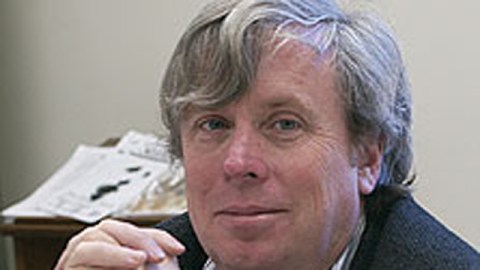Change We Don’t Really Believe in… (Or Legendary Teacher No. 4–Harvey Mansfield)

So here’s an engaging and most instructive lecture by the legendary Harvey Mansfield, probably the only member of the government faculty at Harvard who votes Republican. Mansfield, of course, is famous for his promotion of manliness, Machiavelli, Aristotle, Tocqueville, and constitutionalism. For his tough gading, he was once known as “Harvey C-minus (his middle initial really is C) Mansfield.”
Here’s a taste:
Confidence in progress has now been replaced by postulation of change. Progress is achieved and can be welcomed, but change just happens and must be adjusted to. “Adjusting to change” is now the unofficial motto of Harvard, mutabilitas instead of veritas. To adjust, the new Harvard must avoid adherence to any principle that does not change, even liberal principle. Yet in fact it has three principles: diversity, choice, and equality. To respect change, diversity must serve to overcome stereotypes, though stereotypes are necessary to diversity. How else is a Midwesterner diverse if he is not a hayseed? And diversity of opinion cannot be tolerated when it might hinder change.
In the same way, choice in our curriculum is displayed in a dizzying array of courses that make it easy for students to indulge their whims and protect their leisure. Choice is best when it does not produce devotion and leaves one’s options open. A devoted student makes himself unready for change. Respect for merit remains, but it wavers and yields to the conventions of flattened self-esteem in which everyone is entitled to a point of view—and, need I add, a high grade. Thus equality is prized not because equality is good, but because nothing is good. Harvard is not so great either, though it’s not so bad. Perhaps our embarrassment at being there is sincere? No, that’s unlikely. But Harvard no longer believes in itself and has acquired a strong sense of guilt for its pretensions. What about its prestige? Harvard will hold on to that, because it can be used to deflate its pretensions.
So it’s not so clear that students need college to adjust to change, unless the enemy of change is devotion. Every student has a right to a point of view these days, it goes without saying. But don’t students need, most of all, what it takes to develop a point of view–a spirit of resistance–that prevents them from being thoughtlessly carried along by the flow of technology and fashion?
The “flattened self-esteem” that comes from the equality (or equal arbitariness) of all points of view leaves students, truth to tell, with nothing higher than measurable productivity. If that’s true, then the pretensions of the “humanities” should generate guilt, because there’s nothing real in them that can help students know who they are and what they’re suposed to do.
If college education–especially the basic or foundational part of that education–really is about whimsical choices from a dizzying array of possibilities, then it’s no wonder that students insist that choosing is just a preference that requires no cultivation or habituation or deep reading and can be done easily and quickly by most anyone. So they readily insist that the parts of their education that aren’t technical education not impinge much on their “leisure” or just free time.
And change, of course, is, for someone with a genuine point of view, pretty much always a mixture of good and bad. So change is sometimes to be embraced, sometimes to be resisted, and sometimes, truth to tell, to be viewed with indifference. What we most need are not the tools to adjust to change, but what it takes to think about and make tough judgments about change. Truth (or what we can really know about ourselves) should, in fact, stand above change–directing and limiting it. Change should be, as they great man says, change we can believe in: Change that enhances–or at least doesn’t undermine–properly human devotions.





